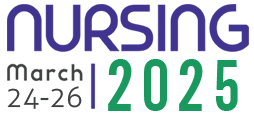Title: The hybridization of training for future nurses
Abstract:
Context: One of the recent advancements in nursing training programs within Nursing Training Institutes in France is the integration of hybrid teaching methods. Objectives: This study explores the role of hybridized training in the professional development of nursing students. It seeks to characterize the effects of hybrid approaches on learning and on preparing students for professional practice.
Methodology: An online, self-administered survey was conducted among nursing students across four Nursing Training Institutes in the Rhône-Alpes-Auvergne region. This survey included:
- A career decision-making self-efficacy scale;
- A perceived stress scale for nursing students;
- Online self-regulated learning scales;
- A scale measuring perceived quality of learning in hybrid simulations;
- Anursing practice self-efficacy scale;
- A scale assessing the impact of digital tools on students’ time management
Results: The study compared the impact of three types of simulations—“organic” (on animal or human subjects), “synthetic” (using mannequins of varying levels of sophistication), and “digital” (utilizing advanced software)—on preparation, implementation, pedagogical application, and perceived skills acquisition. The analysis also examined how these simulation types influenced student stress levels and their career development. Results indicate that student satisfaction regarding pedagogical application and perceived skill acquisition from synthetic and digital simulations was similar, with both showing significant positive effects. In particular, notable positive effects of student satisfaction were observed in two areas: the application of simulations and their perceived impact on self-efficacy in problem-solving. These benefits were not observed in organic simulation, which students rated lower for satisfaction regarding both preparation and execution phases. Notably, the study found no significant effect of simulation frequency on student satisfaction or stress levels. Nevertheless, stress has a significantly negative impact on all aspects of self-efficacy related to career development and appears to limit students’ ability to project themselves into their future careers.
Perspectives: The findings highlight that student satisfaction with the pedagogical application of simulated exercises (both digital and synthetic) and their perceived impact have a positive influence on students’ self-efficacy in professional problem-solving. These insights provide concrete implications for pedagogical practices, emphasizing the notable benefits of digital learning environments.


